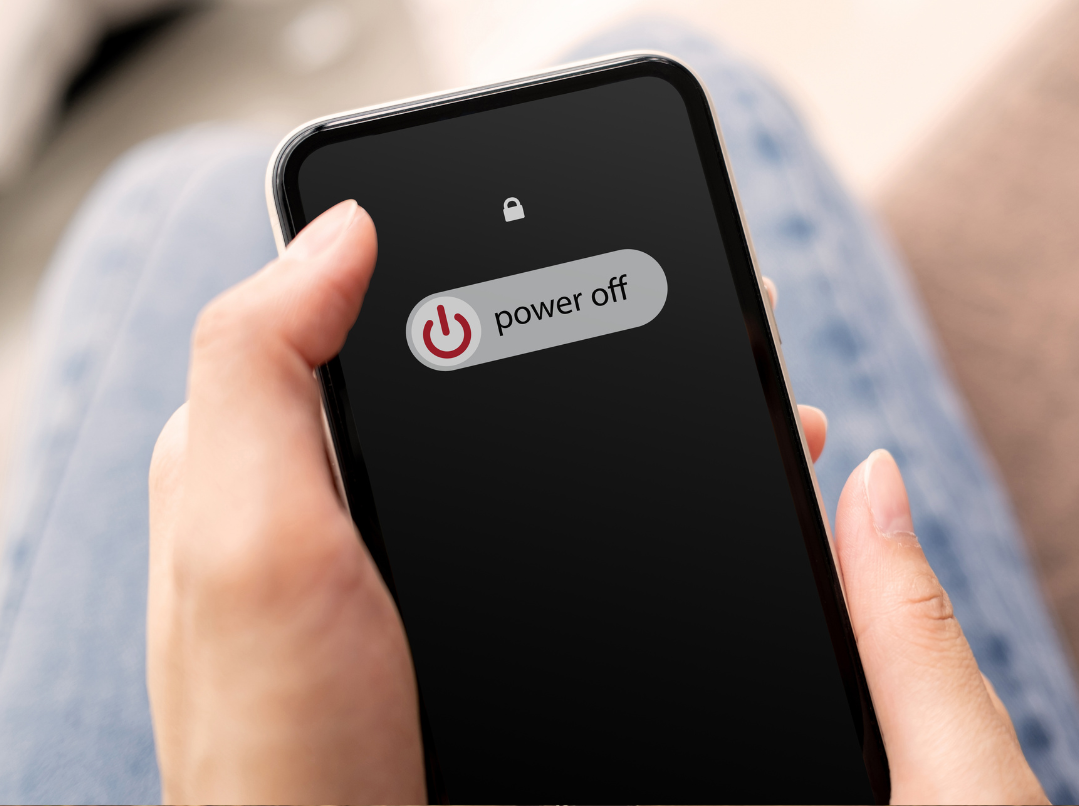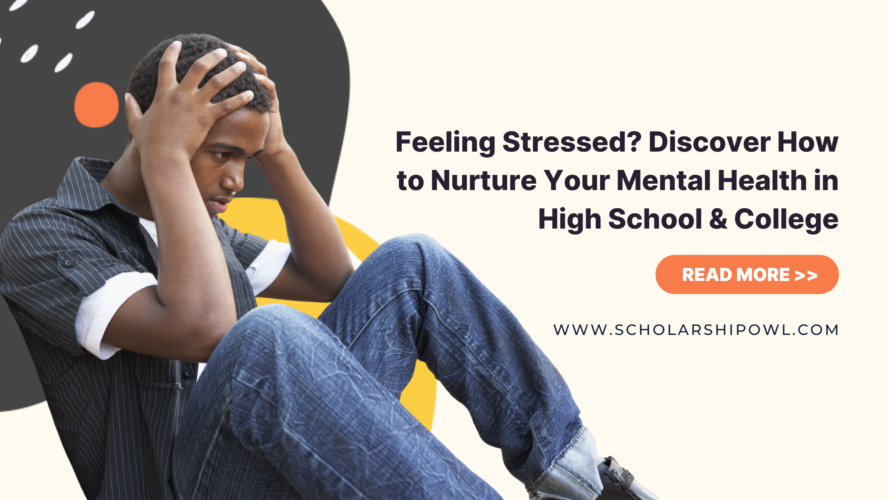Life as a high school or college student can be exciting, with many opportunities to learn, grow, and have new experiences. But it can also be a journey filled with unique pressures, unexpected challenges, and moments that can feel incredibly overwhelming. If you are feeling stressed, anxious, or depressed, you’re not alone. In fact, recent studies show that Gen Z students experience far more stress, anxiety, and depression than previous generations. Let’s unpack why this might be happening, and more importantly, what you can do to boost your mental health and well-being.
Win more scholarships with less effort
Simplify and focus your application process with the one-stop platform for vetted scholarships.
Check for scholarshipsWhy Is Gen Z Feeling Stressed More Than Previous Generations?

The Weight of the World
Teens and young adults today are impacted by numerous stresses that are different than previous generations. So it makes sense that Gen Z is struggling and feeling stressed.
- You’re in the first generation of true digital natives. You’ve grown up during a time when everything around you is in your face, all the time, through social media. You see the headlines as you scroll, so you’re acutely aware of what’s happening in your local community and the world around you.
- Concerns ranging from the weakening economy, the rise of artificial intelligence and automation, political polarization, the profound threat of climate change and social justice issues are being discussed and shared constantly, all hanging out amidst the shadow of the pandemic that upended our lives.
- Then there’s the relentless highlight reel of everyone else’s seemingly perfect lives despite all of the doom-and-gloom news, which understandably can lead to self-doubt. It’s a lot to process, and it can really impact the way you feel.
Academic, Financial & Career Challenges
And let’s not forget the more basic things, like just trying to perform well enough in school to get into the college you want, and to earn the scholarships you’ll need to pay for it. Then there is the ever-present stress of career planning, and charting a path for your future at a time when technology is evolving at break-neck speed. It is daunting to try to determine which direction to go for a future-proof career that will sustain you until you are ready to retire.
Personal Challenges & Difficult Life Experiences
Beyond these common experiences, some students carry particularly challenging life experiences: navigating family dynamics like divorce or estrangement, coping with addiction within their family, grieving a loss, healing from abuse, or living in unsafe environments. These personal battles can add an invisible weight, making everyday challenges feel even heavier.
The Importance of Self-Care When You’re Feeling Stressed

When you feel overwhelmed, remember that you are NOT alone. There are so many other students like you who are feeling the pressure, and there are resources that you and your friends can access to get through the harder days. In fact, by working together with your peers to reduce your stress and anxiety, you’ll already be making a positive step. When the stress feels like it’s piling up, employ these strategies to regain a sense of balance and calm.
Stress-Reducing Activities
First, try incorporating stress-reducing activities into your daily routine that you can do right at home or in your immediate surroundings. Even small moments can make a big difference!
-
Practice Mindfulness
Consider starting your day with a few minutes of yoga or meditation, using free apps or online guides to help you focus your breath and quiet your mind.
-
Get Active and Get Outside

Getting your body moving is a fantastic stress reliever – whether it’s working out at home or a gym, taking a brisk walk, or just enjoying some fresh air outside.
-
Be Creative
Engaging in creative outlets like crafting, drawing, photography, writing, or playing an instrument can be incredibly therapeutic.
-
Participate in Clubs and Organizations at Your School

Recent studies – including one conducted by ScholarshipOwl – have shown the importance of belonging. When students feel they belong on campus, they are more likely to perform well academically, and they are more likely to graduate. Conversely, students who don’t feel they belong are more likely to isolate, and may struggle emotionally as well as academically. One easy way to combat this is to join clubs and organizations on campus that resonate with you. So if you’re feeling stressed, build friendships with similar backgrounds and interests, and you’ll keep yourself busy and engaged in the campus community.
-
Connect Live and In-Person
And don’t underestimate the power of simply spending quality time with friends and family – connecting with loved ones can provide immense comfort and perspective.
-
Improve Your Sleep Habits
Getting enough quality sleep is crucial for your mental and physical health, especially when you’re navigating the demanding schedules of high school or college. Think of sleep as your brain’s reset button – it’s when your mind processes information, consolidates memories, and repairs itself, helping you manage stress and improve your mood. To boost your sleep habits, aim for consistency:
-
- Try to go to bed and wake up around the same time each day, even on weekends.
- Create a relaxing bedtime routine that signals to your body it’s time to wind down, like reading a book, listening to calming music, listen to a sleep-inducing app like Calm, etc.
- Make your sleep environment dark, quiet, and cool, and try to limit screen time (phones, tablets, computers) at least an hour before bed, as the blue light can interfere with your natural sleep cycle.
- Prioritizing rest isn’t a luxury; it’s a powerful strategy for building resilience and ensuring you’re at your best, ready to tackle any challenge.
-
Turn Off Your Phone

In our hyper-connected world, one of the most powerful steps you can take for your mental well-being is simply choosing to go unplugged for awhile. Taking intentional, long blocks of time each day to disengage from “virtual life” and dive into “real life” can significantly reduce feelings of anxiety and comparison that often stem from endless scrolling. Instead, you create space for genuine connection with friends and family, immerse yourself fully in hobbies, explore your surroundings without distraction, or simply enjoy moments of quiet reflection. This shift helps you reconnect with yourself and the tangible world around you, fostering deeper relationships, boosting creativity, and reminding you of the richness of life beyond a screen.
If You’re Feeling Stressed, Reach Out and Connect for Support

Sometimes, tackling stress and mental health challenges requires reaching out beyond yourself. For challenges that feel too big to handle alone, remember that professional help is not only available, but it is incredibly effective and courageous to seek out.
-
Talk to a Family Member or Friend
Sharing your stress and concerns with a trusted family member or even a trusted parent of a friend can provide a much-needed outlet and support system. They can also provide insight and suggest resources to help you navigate your anxiety.
-
Supports Available at Your School

Your school counselor is a fantastic first point of contact, trained to help students navigate these very issues. A trusted teacher or school administrator can also be a source of support and help you find resources.
-
Crisis Hotlines and Therapeutic Support
You can also reach out to crisis hotlines (many offer text options!), explore speaking with a therapist, or connect with a pastoral counselor.
-
Primary Care Doctor
Don’t forget your primary care doctor. Your physician can offer guidance, referrals, and check if any physical symptoms are related to your stress.
-
Virtual Support
Many professionals now offer support conveniently over text or Zoom, making it easier than ever to access help from wherever you are.
Resources and Links to Get the Help You Need
-
Free Crisis and Support Resources
-
-
Crisis Text Line
-
Receive free, confidential crisis counseling via text. Text HOME to 741741 to connect with a trained crisis counselor or visit Crisis Text Line.

-
-
The Trevor Project
-
The Trevor Project provides crisis intervention and suicide prevention support 24/7 for LGBTQ+ youth via phone (1-866-488-7386), online chat, and text (text START to 678678).
-
-
988 Suicide & Crisis Lifeline
-

It can be hard to reach out to someone when things are overwhelming, but conversation is a powerful coping tool. Talking or texting with someone on an anonymous, private helpline can relieve stress. Call or text 988 for support, or visit 988Lifeline.
-
-
National Alliance on Mental Illness (NAMI)
-
Provides a helpline (1-800-950-NAMI) and online resources, including information and support for teens and young adults. For more information, visit National Alliance on Mental Illness.
-
-
7 Cups
-
Offers a large mental health community with trained volunteer listeners and peer support chat rooms. While not licensed therapy, it provides emotional support and self-help resources. Visit 7 Cups to find out more.
-
-
Bliss by the Centre for Interactive Mental Health Solutions (CIMHS)
-
Offers free, self-guided online interactive therapy sessions focused on depression. To get started, visit CIMHS.
-
Active Minds
Want to get involved in activities and advocacy? Active Minds mobilizes youth and young adults to lead a transformative movement in mental health. To find out more, visit Active Minds.
Know that You’re Resilient, and Things Will Get Better

Life as a student is a dynamic mix of triumphs and trials. While the journey is incredibly rewarding, it’s also demanding, and it’s completely normal if you are feeling stressed, anxious, and pr experiencing other mental health challenges along the way. Acknowledging these feelings is the first step toward managing them. Whether you find solace in quiet self-care practices, draw strength from your closest circle, or courageously seek professional guidance, know that you are resilient, capable, and surrounded by a community that is rooting for you!
Whatever you are experiencing, remember that things can and will get better. But if you are struggling, you don’t need to go it alone. Reach out to trusted family, friends, and professionals who can assist you in accessing the support and resources you need to feel better, and to thrive.



